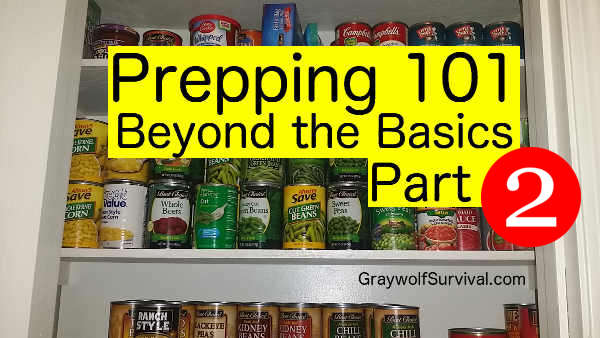 This 3 part series is designed to give beginning preppers an idea on how to approach being prepared. It can be a daunting task, and you might feel overwhelmed at first. But I have tried to break it down into manageable parts.
This 3 part series is designed to give beginning preppers an idea on how to approach being prepared. It can be a daunting task, and you might feel overwhelmed at first. But I have tried to break it down into manageable parts.
If you missed Beginner Basics or Beyond the Basics Part I of this series, I’d encourage you to go back and read it. Otherwise, we will pick up where we left off.
Quiet, You!!
This site has multiple, insightful articles on dealing with OPSEC (or Operational Security). I don’t need to rehash what all has been said.
There are several articles in the OPSEC Category here and I encourage you to read them.
OPSEC is something you need to start thinking about. And it is also something you need to talk to your family about. They need to understand that what they say about this to others may have consequences they never dreamed of.
Below is a video from the Nat Geo program American Blackout. If you haven’t seen the entire video, I won’t ruin it for you….though I will say the actions have unintended consequences.
While remaining tight lipped about your prepping is a good idea, I also believe you shouldn’t go it alone. You need like-minded people with you in times of emergency. So balancing OPSEC versus getting friends and neighbors to start preparing could be tricky. I wrote an article about assessing your neighbors for a potential SHTF situation.
Getting like-minded people that you trust on board with your plans and goals isn’t always easy and is NOT something I would rush. Take your time, and if that person doesn’t feel right, they probably aren’t.
I’m not saying not to be charitable when you can. Just know that what you say and what you do, no matter how small, could produce results you were not counting on. So SHHHHH!!
Flaws and Weaknesses
I mentioned before about revisiting your plans from time to time; making changes as conditions dictate. But you should also now start looking at your plans and gear and begin to identify flaws or weaknesses in them. This isn’t always easy, but I’ll give you some examples of weaknesses I found with my plans.
I have mentioned having chickens, rabbits, and some goats on our homestead. All provide excellent sources of renewable food. But I noticed that every few weeks we were hauling in quite a bit of food to feed them. Chicken feed…..rabbit feed…..goat feed. It isn’t hard to imagine the trouble we would be in if we lost the grid and could no longer obtain food for our livestock.
So I began looking at ways that we could feed our livestock with renewable sources of food for them. For the rabbits and goats, we will begin growing our own timothy hay in the spring. I’m also looking at growing duckweed. (Keeping it alive in the winter is my issue at the moment.)
For the chickens, they can forage quite a bit in the spring and summer. But I am growing worms to help supplement that and keep them fed in the winter. (I’ll have more on this in the future.)
I looked at our water supplies. We have a huge amount of rain water stored. But it is all channeled from our gutters. That means the rain traveled down our roofs, both shingled and tin. Who knows what kind of contaminants are up there and in the gutters? But I purchased several bags of calcium hypochlorite and can now purify around 76,000 gallons of water.
One last issue I’ll bring up is that should it all go to hell in a hand basket and we have to survive on the homestead for a long period of time, we would need to produce more food than we currently are. We have plenty of food stored, but we decided that we would have to expand our rabbits (and garden) in case things go really bad.
The beauty of rabbits is that they breed and grow quickly, and within a few months we could be where we projected that we would need to be. But that would require more cages. Since we would not use those cages unless SHTF, we would then have to store them. That in turn would make storage an issue. So instead, we bought material and built a cage. It works great. (We tested our idea and we know it will work.)
We are now acquiring the materials needed to build more. And storing the materials is much simpler than storing the cages themselves.
Are there other problems out there that we haven’t identified yet? You better believe it. But our plans will continue to evolve and change as we identity other potential problems. So should yours. As they say, “The best laid schemes of mice and men…”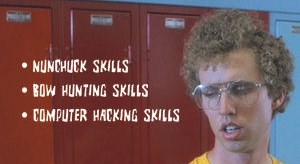
Girls only date guys with great skills…
As I mentioned in my previous article, you should begin to develop some preparation and survival skills. Gear and supplies will only take you so far. This link takes you to a great article (including videos) of some of the skill sets that you should begin working on. But I wanted to add a few more that I think are also important.
- Firearm care and maintenance – You should be able to field strip and reassemble your firearm(s) with relative ease. You should know how to clean them properly, and you should have some extra cleaning supplies set back. Also knowing how to make minor repairs would be good. You can find multiple Youtube videos on this subject that are specific to your guns.
- Sewing – You should be able to at least mend torn or ripped clothing and gear. I couldn’t make a buckskin suit from scratch, but I could sew a rip in my shirt. If things get really bad, you might not be able to go to the GAP and buy a new pair of jeans. You might have to make do with what you have. Extra sewing supplies…also a big plus!
- Organizational skills – it might seem kind of silly to you, but being organized now will help keep you focused and feeling in control should disaster strike. The more you prep, the larger it becomes. So get your gear and your plans organized. Make a list of what you have and where they are located. You might know where your camp stove is, but if you are away from home when disaster strikes, your family might not. Use maps to plot potential routes. Make a check list of items you need to obtain, etc.
- Cooking – Any idiot can cook in a microwave. What/where can you cook when there is no power? When your grill is out of propane? What other means do you have to cook? Can you make a solar oven? Sure you can make a fire, but do you know how to cook with it? Cooking over an open flame is different than cooking over a stove top. Another little tip I’ll throw out there….assign one person in your family/group to cook and let them prepare all the meals. It reduces the risk of cross contamination.
In addition to skill sets, you need to increase your knowledge. Study and learn not just survival techniques, but increase your knowledge on emergency preparedness overall.
For example, did you know that you could drink the water from your hot water heater in a true survival situation? Do you know how to get it out?
If the grid were to go down, would you be able to predict the weather with any sort of success?
Could you find north without any sort of compass?
The list could go on and on. Each week I devote a little time reading and studying something new. Currently, I’m teaching myself how to grow worms and home remedies for curing ear mites in rabbits. Both topics will benefit me now and in the future if things go south.
If you have questions or comments, you can email me at planandprepared@gmail.com

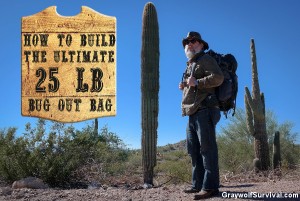
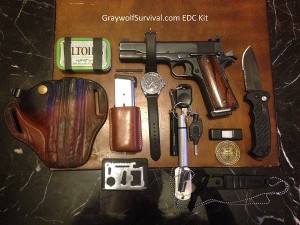

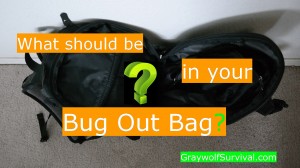

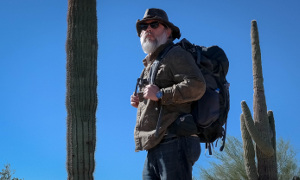
James I wanted to get your opinion about gas masks. I have been considering an SGE 4/3 infinity NBC gas mask but not sure if I am leaning toward caution or just being paranoid. I plan to get quite a few items to add to my BOB. I have even included an emergency surgery kit with suture thread and needles. I am a Nam Vet and am still in “decent” shape and took your advice concerning walking with my pack, ILBE Gen II which is comfortable and sturdy, to stay used to the weight. I live in Fort Lauderdale, Florida which is densely populated area and not real sure what I should get for this area. Would you give some of your input ?
Louie, in Florida it might be a moot point. Get a good bio respirator. If it goes nuclear or chemical there’s probably nowhere you can get to quickly from Lauderdale that’s gonna be safe. Bio is a more realistic scenario due to the long coastline and accessibility to refugees. Spend whatever money you save on a boat and a good radio and GTFO if you hear it’s going N or C. Not gonna say “must have”, but in FL a boat is a pretty reasonable piece of survival gear. A whaler montauk or dauntless 17′ or 18′ gets a lot done for not much maintenance.